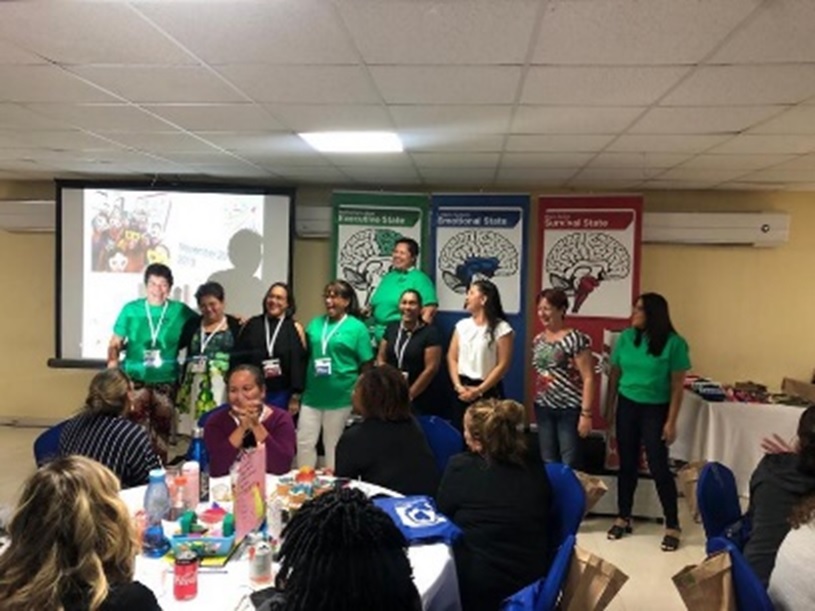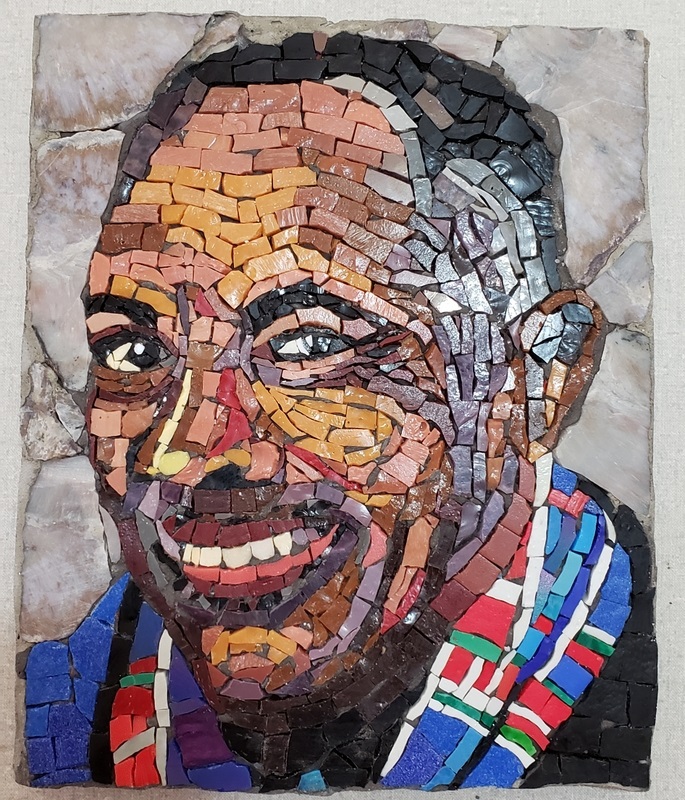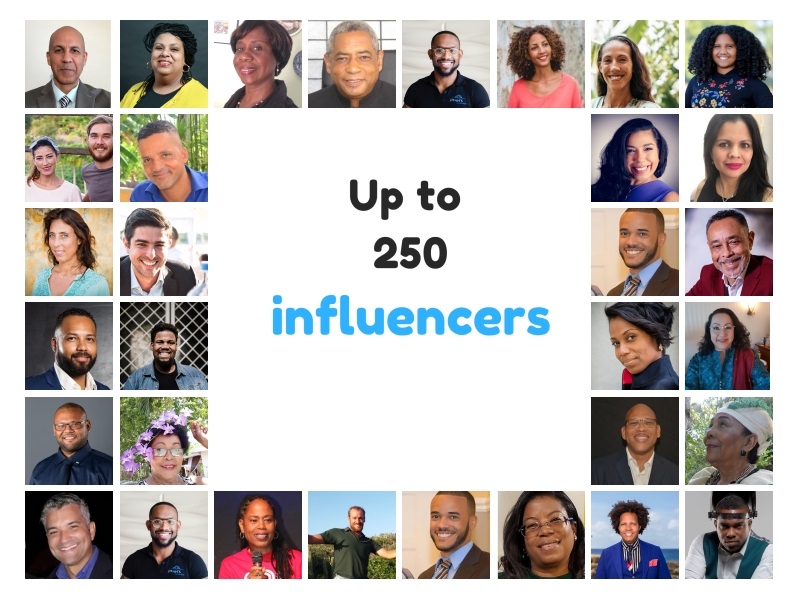Influencer Helen Guda
Interview November 2002

Helen, could you share with us some information about your family life?
I was the 3rd child in a family of 5 children. My parents came from Surinam and went to Holland for their studies. I was born in Holland, but my parents migrated to Aruba when I was 2 years old. And I feel Aruban.
I am a single mother of a son, and being a mom has been the most important role in my life.
I admire my parents as while studying they had 3 children to take care of and on the weekends, my father’s younger sisters used to come and visit us. My parents had a pretty harmonious marriage and they stayed married until they passed away. I feel privileged to have been born and raised in this stable and loving family, as this created a solid foundation in me. We were stimulated to study but they never pushed us to study in a certain area, they left it up to us to follow our passion. And this I am very grateful for.
We know you to be a psychologist, could you share something about your educational background and your experiences?
After High School in Aruba, I studied developmental psychology in Holland.
Why did you choose psychology?
I always loved children and cared about their well-being, just as I love human beings. I could have also chosen pedagogy, as there weren’t that many other options left if you were interested in children, so in hindsight, I am happy to have studied psychology, it aligned with whom I am as a person.
After I graduated I soon after returned to Aruba and went to work in the government in different positions for 27 years, like testing children and guiding teachers and parents, I have been involved in the introduction of Papiamentu in our education and with the introduction of the Internal School Guidance System and after a while, I became acting head of a department in charge of guiding parents. I came to a crossroads where I had to decide whether to either become the head of the department or not. It was about that time that I got a burnout. On my road to recovery, it became clear to me, that I was not supposed to become a manager because I missed direct contact with children and parents. Being occupied with managerial tasks didn’t give me enough energy, so I decided to go on an early retirement. This was the right thing for me to do and I started my own company “Develop to Grow” and worked in a Partnership, ‘Maatschap’, with one of my sisters who had a consultancy towards corporations. And we offered training and coaching. I also got involved with Conscious Discipline and I became a certified trainer. 2 years ago I stopped these activities. Nowadays, I am focusing on voluntary mentoring and acting as an advisor when needed.
How did you got involved in Conscious Discipline?
As I said, I always loved children and cared about their well-being. In 1991 a group of us started a foundation focused on addressing child abuse. We visited a conference in 1992 in Chicago and one of the important takeaways from that conference was, that we need to focus our attention on prevention. Of course, the aggressors need to be punished but we needed to prevent the abuse of children. Secondly, that a much bigger problem is neglect.
And this is a problem all over the world btw and then very little was being done in Aruba. So we tweaked our focus towards prevention and offering parents guidance as we need to educate our children differently in this time and age. Our education isn’t the very best to enable children to become their very best selves.
As we continued to search and explore in 1997 I met Dr. Becky Bailey in Baltimore at a conference. I got this “Eureka”- moment as I immediately knew that this is what I have looking for all these years. I now knew for sure that I wanted to be involved in rolling out this approach instead of continuing my career in a managerial position.
We were referred to you by Rashel Hawker the daughter of Sheila Albertoe, because they were impressed by Conscious Discipline course they followed in Aruba some years ago and that they are trying to roll out among the youth that they are dealing with. How did you get involved in conscious discipline and how long was that ago?
After meeting dr. Becky Bailey in 1997 we invited her to Aruba and she came twice and gave short workshops that were very successful. Then some people from the foundation went to her training and started to give teacher training in Aruba. After I went to a Conscious Discipline Summer Institute (DC1) in 2005, I was sure I wanted to give workshops to teachers and parents too. I 2007 I did the second training (CD2) and this is where I committed myself to become a certified trainer authorized by Becky Bailey’s organization in 2008. I became a certified facilitator and started to promote conscious disciple.
What is Conscious Discipline offering?
Conscious Discipline is an approach that is focusing on the social-emotional development of children and their educators. It is based on knowledge of how our brain works and teaches children and their educators the right skills to handle life’s conflicts positively. Conscious Discipline’s strong point is that it focuses not only on the children but on the adults too. You cannot give what you don’t have.
Children experience problems because they don’t have the right skills to address certain challenges. The conventional way to deal with children is to reward positive behavior and punish negative behavior.
But this is not an effective way to deal with these kinds of situations. An example, if a child in the classroom doesn’t pay attention, you are not going to help him by punishing him.
Or, if they are mad and misbehave, you punish them.
The effective approach according to Conscious Discipline is to consider how you can develop their attention span, based on knowledge of how the brain functions. Or develop their impulse control when they are mad. We assume that the children and their parents are capable to handle these types of situations themselves.
Let’s use me as an example, everyone has challenges to deal with. I use to get triggered by the Tax Office. Even if you paid online, you had to go to the office to get your form stamped and I would feel irritated to have to go to the Tax Office just to have my form stamped.
I have learned to accept the situation for what it was, because I could not change it, to calm myself and go to the office to get my stamps without complaining. The same goes for a child, children can learn to calm themselves down to be able to deal with the challenge and/or problem at hand. But to be able to do just that, the parent/teacher also needs the skill to be able to calm themselves so they can deal with the child.
How does the brain work concerning our emotions and our behaviors?
When you feel threatened and in a survival state, you are not capable of doing things. You are in fight, flight, or freeze mode.
When you are in an emotional state, you feel misunderstood and unseen.
Going to the Tax Office wasn’t a fun thing to do, but the system is like that and it is as it is.
What you do have in your own control, is how you react to the situation at hand. You can decide to make the best of the situation.
The same goes for a parent when dealing with a child. You can choose how you react by choosing to change your mental state and enable yourself to become a better educator for the child so that they can become more successful. It is all about emotional self-regulation.
If you look at an organization or a school the same principle is applicable. As leadership one can choose to enable others to feel good through emotional self-regulation, this makes it possible that people can and want change. Changes can’t be imposed on people. Conscious discipline invites people to change. People need to feel safe and connected first before they can learn new things and change.
How well was this approach able to get rooted in some form in Aruba?
When I got back from Baltimore we organized workshops for teachers in 2000 and 2001 workshops. After 2007 I was able to be a full-time trainer and this led to 2011 when we organized a big conference with some foreign speakers. During 2011 and 2012, we organized 4 big conferences/workshops where 170 attendees, including after-school caretakers and preschool teachers, were attending. The results have become noticeable. This was picked off by some, and they embraced it, but not everyone who attended followed this up as it involved a transformational change that for some was threatening. We noticed that some schools started to implement this more systemically. In 2015, we had another week-long big conference, the first ever held outside of the USA.
After my first training in 2007, I had follow-up sessions with the participants and I met Vanessa Zara Tromp. She was very practical and involved in direct contact with children and parents. Vanessa wanted to join me because she was impressed by Conscious Discipline and how it helped her children. When we were in training, she was instrumental in sharing her experiences. She put in lots of hours as a volunteer. The last big conferences/workshops were held in 2019. With ups and downs, the concept is spreading. We now have 4 certified trainers.
One of my guiding principles is that one has to share if you want it to spread. The more you share the more you reap. I have given so many workshops over the years trying to entice others to get involved or become a facilitator. Now I am retired. Going on early retirement for me was perfect, as it offered me the opportunity to dive deep into Conscious Discipline. I started my own business with my sister after my early retirement also offering Conscious Discipline. Now I stopped also with that and I am now a volunteer in our Foundation ‘Fundacion Educador Consciente Aruba'(FECA).
Gina Ras and Carla Briezen are also certified, trainers. They have also facilitated training as volunteers for years, as one needs to be certified to be able to charge for training. Where we are now is thanks to our collective efforts, it was not only my accomplishment. For Aruba, it has been important that from the start certain key organizations were involved and positive about Conscious Discipline, the Department of Education, The Teachers College, The Department of Social Affairs, and The foundation against Child Abuse ‘Respeta mi’. And we always sought and stimulated collaboration between organizations but also enthusiastic teachers and other professionals.
• This year we have a training for a group of professionals working in the educational sector and some with a therapeutic background. As a group we go deeper into Conscious Discipline and we stimulate each other to present and share Conscious Discipline with others. We meet once a month and you can see the group growing some are already volunteers in facilitating workshops.
• Furthermore, to consolidate the rolling out, we started three years ago with a foundation.
• We have two of the 4 certified trainers working for the Ministry of Education.
We have surely two schools that function as models of CD implementation and the next time you are in Aruba I invite you to visit these schools. The atmosphere at two “model” schools in Aruba applying the Conscious Discipline is different and the children, parents, and teachers grow and change positively.
• IPA which is in charge of teacher training, offers a module on Conscious Discipline in their curriculum.
• PDG ( = Pedagogic Didactic Certification) let their students get acquainted with Conscious Discipline.
• Some workers at The Ministry of Social Affairs also use the CD in their work with parents and children, meaning that Conscious Discipline has spread itself over Aruba and keeps on spreading and growing. The FECA keeps offering parents workshops and with this group, you also see a growing understanding and interest.
We have understood that you have also shared this approach on the other islands of the Dutch Caribbean. Can you expand a little bit more on your vision and the efforts you have undertaken to share this concept on the other islands?
Over the years we also visited Curaçao, Bonaire, and Windward island. In the end, it did start to ripple down. People attend our workshop and they take notice of how problems are being solved and they become curious about how this is done.
In 2019 representatives of all the islands of the Dutch Caribbean attended our conferences.


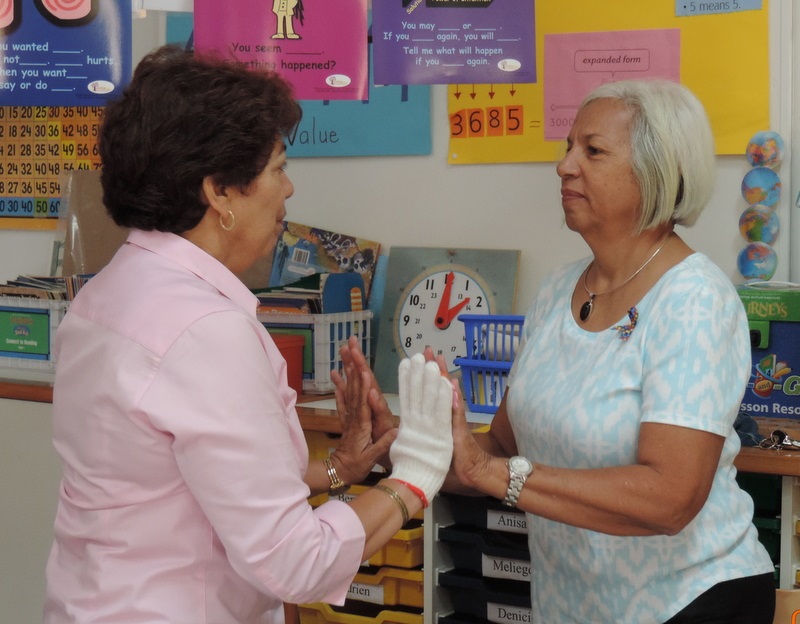
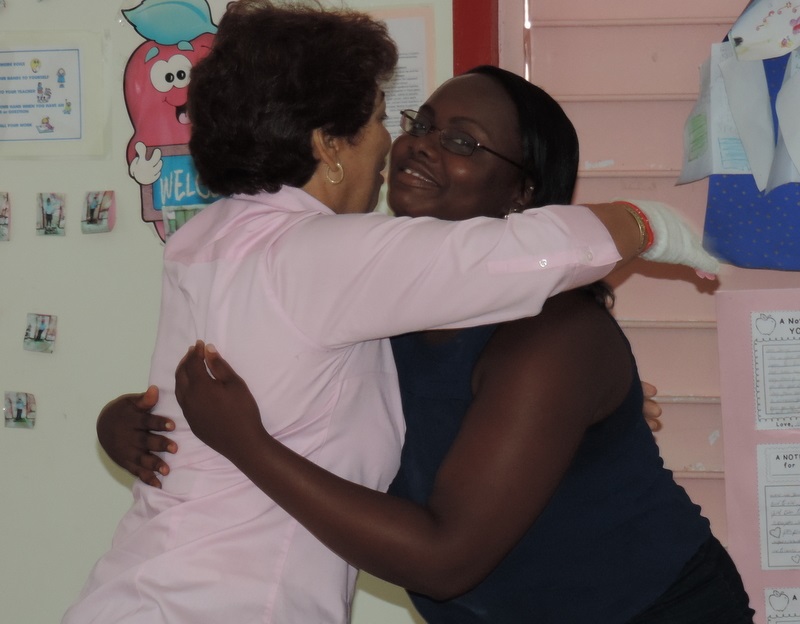

Bonaire:
Like in Bonaire they attended the conference and responded enthusiastically. We connected with them through the Child Abuse Foundation ‘Respeta mi’ and they also visited Aruba schools that were implementing Conscious Discipline and they got interested. So we started with Bonaire. And in Bonaire, two schools started implementing Conscious Discipline and it has its ups and downs, like something happens, for example, a school principal leaves but after a while, others pick it up again usually. Also, the Covid pandemic abruptly intervened. But now they are connecting back to us and this year some of our trainers started a long-term trajectory on Bonaire.
Curaçao:
We connected with Sheila Albertoe and Rashel Hawker (Bos di Hubentut) and they focused on non-violent education. They attended our conference in 2019 with a delegation and invited us to come to Curaçao. We accepted and we explained what we were doing with Conscious Discipline in Aruba. We visited different radio programs, we went to TV and they are rolling out this approach in Curaçao, offering workshops for teachers and parents. Our approach is to share and train trainers in their organizations to become co-trainers of Conscious Discipline.
SIGE is 2019 also organized a conference on Conscious Discipline and Gina Ras De Kort facilitated the Conscious Discipline part and it was very well received. After silence during the pandemic, I think the Department of Education from Curacao and Bos di Hubentut picked up their activities and 2 of our trainers did have presentations in Curacao. As far as I understood Curacao is working on plans for how to continue.
Sint Maarten:
There was interest in training done a few years ago but I think the lack of budget has hindered follow-up.
Saba and Statia have invited us for a few pieces of training, Statia has even had a master trainer from the US over. Both Island has sent people for our international training here. After the pandemic, we have not heard from them.
What have you learned from this process of rolling out Conscious Discipline in Aruba?
One of the things I have learned over the years is to start small and don’t force people that are not motivated or interested, forcefully to be part of the program. In Aruba. I was very well-connected. I had a huge network, I knew so many organizations, and I had an affinity for these groups, I wasn’t always liked, but I was respected. It taught me to, not to apply a general island-wide approach. If it doesn’t progress on this route, find another route to follow and go for it. I firmly believe that the spreading of this concept needs to be organic.
What is your BIG WHY or driving motivation to be who you are right now and do what you are doing now?
My Why is, I love children and care about their well-being.
Since I was a child, I knew from early on, it is not if but how. I am a strong single mother, an engaged mother, stubborn at times and I do things I believe in. I love my son dearly and together with other parents even started a cooperative Childcare center. The reason for this passion is, that I met so many children over the course of time that needed to feel safe and secure in their respective environments. And there wasn’t a lot I could do for them, this triggered me to work on prevention. I was also very involved in equal rights and payments for unmarried single mothers, and children from unmarried parents. Things have changed over the years, but we are not there yet. There is still more work to be done in this area also.
What are your plans for the coming years and when do you consider that you have been successful in your personal and business/professional life, let us say 5 years from now?
I am retreating more and more and I am in a stage of my life where I am carrying over my knowledge and skills to the next generations. I don’t want to be a driver of the changes I see myself more as an Elder, and advisor, freeing up time to spend on my hobbies.
What are the challenges that you are dealing with? And how are you dealing with these different challenges you confront?
I have reflected a lot on this, but seriously I have no challenge.
Do you use your inner voice to evaluate when dilemmas show up? How does that work for you?
There are different ways to look at the Inner voice. You have an inner critic that is a negative voice and an inner voice that is positive and I am training myself constantly to replace the negative inner voice with the positive inner voice and by doing that I am getting to know myself better.
When confronted with a dilemma and take time to self-reflect and look at the issue at hand from different angles and I talk to different people. I let it “stew” for a while. And then one day the answer pops up and I am sure of it.
How are you trying also to keep up with your knowledge and skill levels?
I attend workshops as this is expected you do once you become a certified trainer, so I have been to the States regularly to take notice of the newest developments. I follow webinars and I am still very active in groups where I learn from my peers. These are people that I have trained in the past and now I am learning from them.
What are your strengths?
I am a pioneer, I am very good at starting new things, and if it is needed I will do it myself.
I am a persistent person. I don’t give up and will only stop when it is done. But I have learned that the world was here when I was born and will still be here when I pass away. But if I can change 1 square meter on this earth I would feel fulfilled and happy about that legacy. I set my goals and adjust when needed.
When Becky Bailey was here on her last visit, she told me: “Look what you have done in Aruba”. And I was like still wanting more and more. This taught me to contemplate what I have reached.
Do you have hobbies or interests that you are also passionate about?
At this moment in time, I am all into making mosaics. After my burnout, I needed to have creative activities. I started painting lessons and stopped and rolled into mosaic art. Nowadays, I combine my other hobby, traveling with following courses on mosaics.
If you as Helen would meet a stranger on the bus (let’s say in Miami or Bogota Columbia) and they would ask you to introduce yourself, what would you answer?
A mother and a Conscious Discipline trainer.
How would you describe Helen in one word or one sentence?
A passionate person that loves people.
Who are the persons that have inspired you the most in your career?
• Henk Rost: A teacher during the times that I was a psychology student.
I was a little bit confused at that time regarding what is the truth. And during the study, we were taught different theories and this confused me even more. So one day I ask him the question of what to do as there were so many options that I could choose from. His answer was very meaningful to me, he said:
“Use your common sense”. This has impacted me thoroughly.
• Furthermore, my former chef and dear friend at the Ministry of education Roy Tjon A Tsien, taught me a lot of my work but most of all a lot of life lessons in and outside of work.
• Scott Peck, the author of the book: “The road less traveled”. This book has changed the way I looked at life and Spirituality.
• Steven Covey and the 7 Habits has helped me to organize my life and work much more effectively.
• And of course dr. Becky Bailey.
What is a trait that is still a work in progress?
I am often not patient enough. The flip side of being passionate is that I can be too pushy and untactical. But do it out of love, always, people who know me well know this trait of mine.
What was a defining moment in your life?
When I was 15 years old I became aware that I was growing up in a privileged family. I didn’t know poverty and didn’t experience neglect. In a mall in Columbia, somebody tapped me on my arm and it was a girl of my age with a stumped arm that was inflamed asking for money. It hit me that I could have been her and it is by coincidence that I was born in my family. Thus, that I am entitled to nothing in my life. But be grateful and use my abilities for others.
My burnout was another defining moment. It made me change my career path. The psychiatrist that coached me, told me that this was the best thing that could have happened to me. I wanted to hit him when he said that but life has shown me that he was right. My dedication was big, so this made me unable to see that there were other options that I could follow. It has been a tough lesson, that I have learned.
What would you want your Loved Ones, family, friends, and others to say about you let’s say 20 years from now?
That the world is a better place compared with when I was born into this world, because of my efforts.

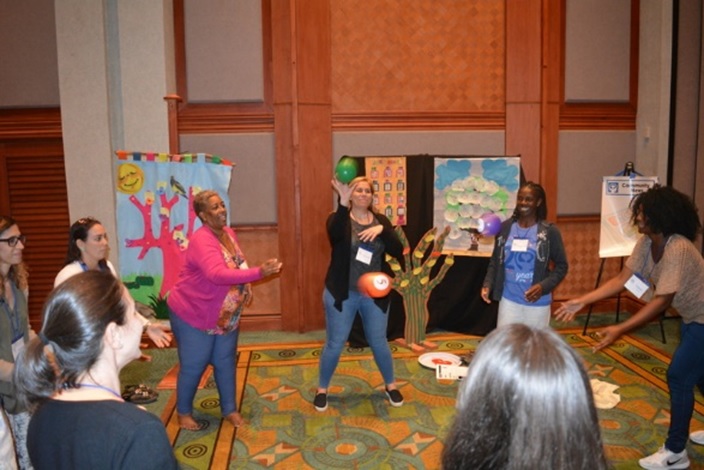
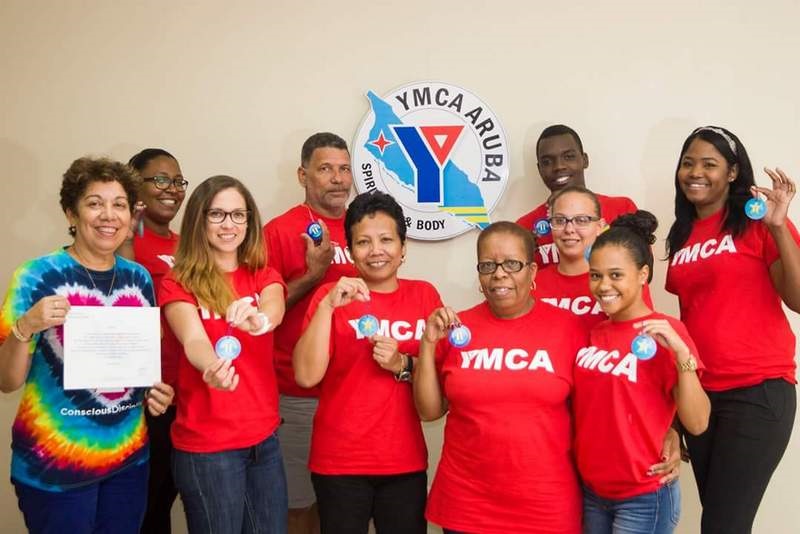
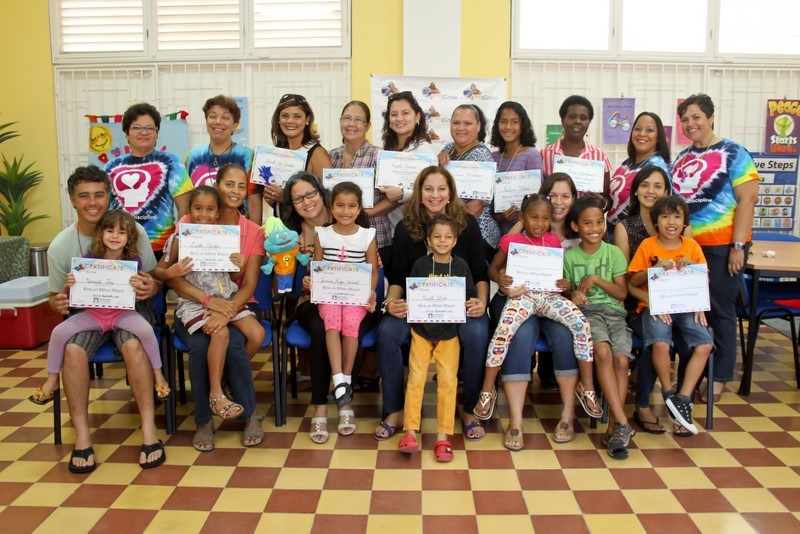
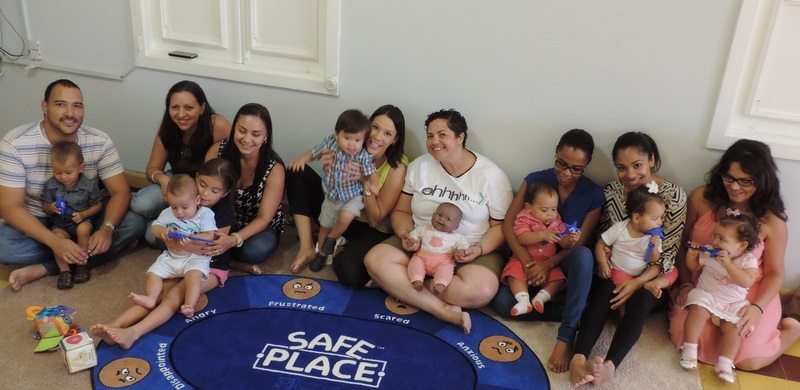
What makes you stay optimistic about the future as we are in the middle of a worldwide pandemic and in the middle of growing environmental challenges because of global warming consequences? Is there anything else that you would like to add?
Some people tell me that life isn’t like I portray it to be. Well, I am so convinced that humanity, contrary to what it might see at face value is progressing in a positive direction. Like we as human beings, how we deal with one another, etc. I am convinced that we are here on this earth to learn and that we are doing just that and we can learn. If you should look at developments over a longer period, you can see advances in the position of women and minorities.
The only challenge I see is an existential one and I hope that we will continue to evolve so that we can have a better consciousness to lift ourselves to a higher level of being. It is who I have always been and hope to stay like that.
More info or connect
Helen Guda – CD Certified Instructor
P: +297 592 2519
E-mail: helen.guda@gmail.com
Global information: Web • Facebook • YouTube • Twitter
One of the 250 Influencers of Curaçao
Helen Guda is an inspiring, persistent, pioneering, collaborating, strong single, and engaged mother. A psychologist by profession, and Certified Conscious Discipline Trainer, she can be stubborn at times but always undertook things that she believed in. As her purpose in life is, to love children and care about their well-being, during her career first as a civil servant and later on as a consultant, her journey led her to focus on the importance of the prevention of child abuse, to discovering Conscious Discipline (CD), that she over the years has wholeheartedly rolled out in Aruba. CD has led to noticeable results. One of her guiding principles is, “One has to share if you want it to spread”. Via Helen in close collaboration with other like-minded professionals, CD has “Rippled” in Aruba and even to the other islands in the Dutch Caribbean, especially Bonaire, and Curaçao. Her focus, as an extremely well-connected person in Aruba society, from the start, has been to target certain key organizations to get them involved and positive about Conscious Discipline, like the Department of Education, The Teachers College, The Department of Social Affairs, and The foundation against Child Abuse ‘Respeta mi’. She always sought and stimulated collaboration between organizations but also enthusiastic teachers and other professionals. Helen has always been good at starting new things, she did it herself if needed, like starting a cooperative Child Care organization. She was involved in the introduction of Papiamentu in Aruba and the Internal School Guidance System in schools, while she was also actively involved in equal rights and payments for unmarried single mothers, and children from unmarried parents. She is the type of person who will only stop when she is done but is flexible enough to set goals and adjust when needed.
One of her teachers, and mentors, that had impacted her in a defining way is Dr. Becky Bailey, who started with the Conscious Discipline Approach that focuses on teaching self-regulation skills to children and their educators (parents and teachers). She said to Helen on one of her two visits to Aruba:
“Look what you have done in Aruba”. Of late she is retreating more and more and carrying over her knowledge and skills to the next generations, as an Elder, and Advisor, freeing up time to spend on her hobbies. For all these reasons, we consider Helen Guda one of the 250 Influencers of the Dutch Caribbean societies, representing the “Educational”-sector. Look at the list of the Influencers we have interviewed or reported on, up to now.
This week we will share some short videos on “Conscious Discipline and Mindsight”. We will upload one of these videos every day on our facebook.com/share2uplift page.
Conscious Discipline: 2 + Choices – YouTube
Dr. Dan Siegel – “What is Mindsight?” – YouTube
Healing trauma
Feeling Buddies – Tips from the Creator Dr. Becky Bailey – YouTube
Handling Temper Tantrums – Conscious Discipline Skills – YouTube
Sophie is a S T A R – YouTube



